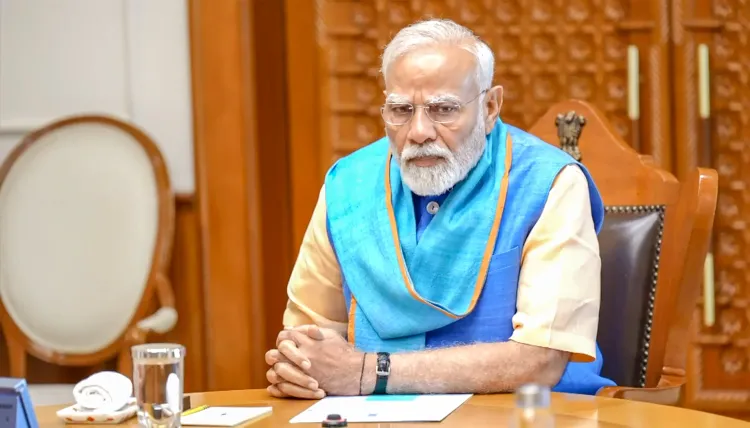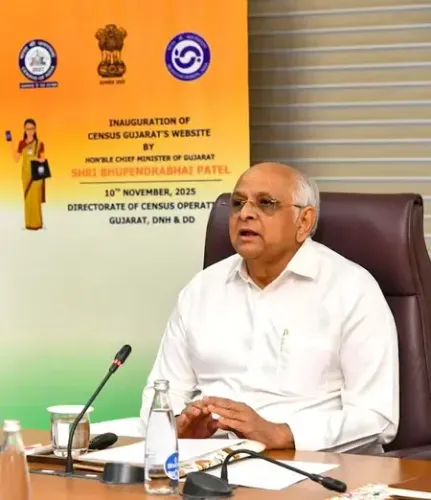Has the Modi Government Declared Total War on Terrorism?

Synopsis
Key Takeaways
- India now treats terrorism as an Act of War.
- Zero-tolerance policy implemented.
- Redefining military response to cross-border terrorism.
- Operation Sindoor targets terror camps in Pakistan.
- Significant escalation in India-Pakistan tensions.
New Delhi, May 10 (NationPress) In a significant strategic shift, India will now categorize any future act of terrorism on its territory as an Act of War — delivering a direct warning to its adversaries, particularly Pakistan, following the recent terror attack in Pahalgam and the ongoing Operation Sindoor.
This pivotal decision, made at the highest echelons of the Prime Minister Narendra Modi-led administration, marks a new benchmark in India's national security strategy, as confirmed by top government sources to IANS.
Reclassifying terrorism from a 'proxy threat' to an 'act of war' demonstrates both the evolving nature of conflict and the government's commitment to a zero-tolerance approach. This comes at a critical moment when Pakistan's role in cross-border terrorism is once again under the global spotlight.
By designating future acts of terror as acts of war, India effectively abandons its long-held policy of 'strategic restraint'. “This is not merely a shift in security policy—it conveys to the world that India will no longer accept terrorist attacks as isolated incidents,” sources informed IANS.
The message is clear: India intends to retaliate against terrorism not merely through law enforcement but with military force. This shift in doctrine significantly raises the stakes for cross-border terrorism—politically, diplomatically, and militarily.
A devastating terror strike in Pahalgam resulted in the death of 26 civilians on April 22, marking yet another instance of cross-border terrorism. Intelligence has provided compelling evidence linking the attack to Pakistan-based terror group handlers orchestrating the operation. In retaliation, India initiated precision air and artillery strikes under Operation Sindoor, targeting various terror camps and launch pads in Pakistan-occupied Kashmir (PoK) and deep within Pakistan's borders.
In response, Pakistan undertook a series of hostile military actions, including drone incursions, rapid missile launches, and heavy artillery fire along the Line of Control (LoC) and the international border. Civilian infrastructure and military assets in regions such as Rajouri, Pathankot, and Ferozepur faced attacks.
Nonetheless, India's Armed Forces executed a calibrated yet robust retaliation, neutralizing critical command and control centers, radar installations, and ammunition depots inside Pakistan with minimal collateral damage.
As Operation Sindoor progresses, this new policy doctrine is poised to redefine India’s approach not only towards Pakistan-backed terror groups but also as a broader strategic posture in the region. India has established a red line—making it abundantly clear that terrorism will now result in consequences commensurate with acts of war.










